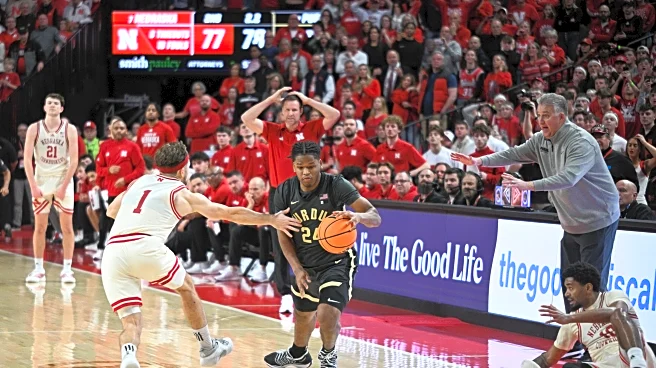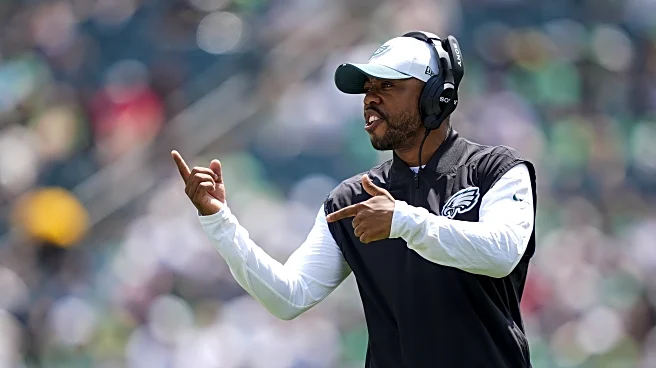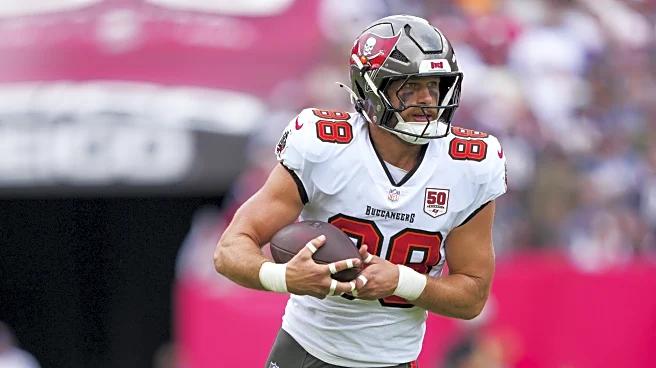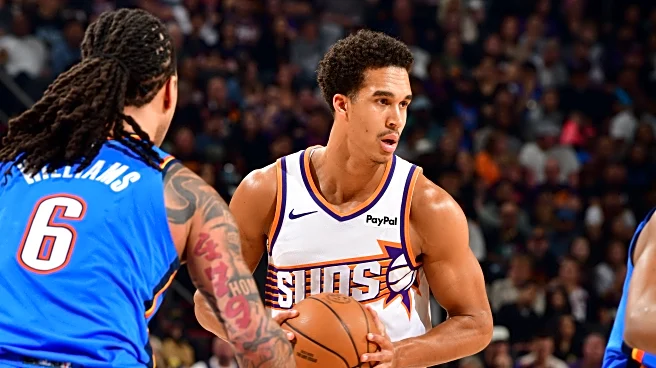What's Happening?
Paul DePodesta, the Cleveland Browns' chief strategy officer, is reportedly planning to leave the NFL team to take over as head of baseball operations for the Colorado Rockies. DePodesta has been with the Browns for nearly a decade, where he was tasked
with implementing systems and processes to strengthen the organization. His tenure in Cleveland has been marked by his use of analytics, a method that has been met with skepticism in the city despite its popularity in professional sports. DePodesta's career in baseball spans 20 years, including roles with the Cleveland Guardians, Oakland Athletics, San Diego Padres, New York Mets, and as general manager of the Los Angeles Dodgers. His departure marks a return to his roots in baseball.
Why It's Important?
DePodesta's move to the Colorado Rockies could have significant implications for both the Browns and the Rockies. For the Browns, his departure may lead to changes in the team's strategic approach, particularly in the use of analytics, which has been a contentious topic among fans and media. The Rockies, on the other hand, stand to benefit from DePodesta's extensive experience in baseball operations, potentially leading to a revitalization of their management strategies. His expertise in analytics could offer the Rockies a competitive edge in player development and scouting, areas where data-driven decision-making is increasingly valuable.
What's Next?
As DePodesta transitions to the Rockies, the Browns will need to address the gap left in their strategic operations. This could involve restructuring their front office or seeking new leadership to continue the analytics-driven approach DePodesta championed. Meanwhile, the Rockies will likely begin integrating DePodesta's methodologies into their operations, which could lead to shifts in their player acquisition and development strategies. The impact of these changes will unfold over the coming seasons as both teams adjust to new leadership dynamics.
Beyond the Headlines
DePodesta's departure highlights the ongoing debate over the role of analytics in sports management. While analytics have proven successful in various sports, traditionalists often resist these methods, preferring intuition-based decision-making. This transition may spark further discussions on the balance between data and experience in sports leadership, influencing how teams across leagues approach management and strategy.
















